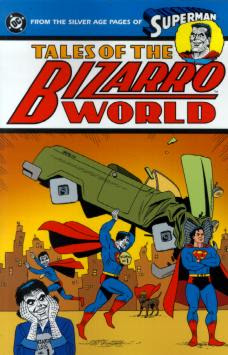
I can hardly mind the political news these days. The bailout bonanza and effective nationalization of the entire economy is just too depressing to ponder. One of the latest iterations, bailing out newspapers is simply surreal.
NEW YORK (Reuters) - Connecticut lawmaker Frank Nicastro sees saving the local newspaper as his duty. But others think he and his colleagues are setting a worrisome precedent for government involvement in the U.S. press.
Nicastro represents Connecticut's 79th assembly district, which includes Bristol, a city of about 61,000 people outside Hartford, the state capital. Its paper, The Bristol Press, may fold within days, along with The Herald in nearby New Britain.
That is because publisher Journal Register, in danger of being crushed under hundreds of millions of dollars of debt, says it cannot afford to keep them open anymore.
Nicastro and fellow legislators want the papers to survive, and petitioned the state government to do something about it. "The media is a vitally important part of America," he said, particularly local papers that cover news ignored by big papers and television and radio stations.
To some experts, that sounds like a bailout, a word that resurfaced this year after the U.S. government agreed to give hundreds of billions of dollars to the automobile and financial sectors.
Relying on government help raises ethical questions for the press, whose traditional role has been to operate free from government influence as it tries to hold politicians accountable to the people who elected them. Even some publishers desperate for help are wary of this route.
Providing government support can muddy that mission, said Paul Janensch, a journalism professor at Quinnipiac University in Connecticut, and a former reporter and editor.
"You can't expect a watchdog to bite the hand that feeds it," he said.
The state's Department of Economic and Community Development is offering tax breaks, training funds, financing opportunities and other incentives for publishers, but not cash.
"We're not saying 'Come to Bristol, come to New Britain, we'll give you a million dollars,'" Nicastro said.
The lifeline comes as U.S. newspaper publishers such as the New York Times, Tribune and McClatchy deal with falling advertising revenue, fleeing readers and tremendous debt.
Even as industries deemed too important to fail are seeking bailouts, most newspaper publishers have refused to give serious thought to the idea, though some industry insiders recounted joking about it with other newspaper executives.
"The whole idea of the First Amendment and separating media and giving them freedom of control from the government is sacrosanct," said Digby Solomon, publisher of Tribune Co's Daily Press in Newport News, Virginia.
Former Miami Herald Editor Tom Fiedler said that a democracy has an obligation to help preserve a free press.
"I truly believe that no democracy can remain healthy without an equally healthy press," said Fiedler, now dean of Boston University's College of Communication. "Thus it is in democracy's interest to support the press in the same sense that the human being doesn't hesitate to take medicine when his or her health is threatened."
Connecticut does not see trying to find a buyer and offering tax breaks as exerting influence on the press, said Joan McDonald, the economic development commissioner.
"It is what we do ... with companies whether it's in aerospace, biomedical devices, biotech or financial services," she said. "If a company is developing laser technology, we don't get into the business of what lasers are used for."
Connecticut's actions are not the first time government has helped newspapers. The U.S. Postal Service has offered discounted postage rates. Several cities have papers running under Joint Operating Agreements, created following the congressional Newspaper Preservation Act of 1970 to keep competing urban dailies viable despite circulation declines.
But the press is not the same as other businesses, said veteran newspaper financial analyst John Morton. "You're doing something that has a bearing on political life," he said.
Marc Levy, executive editor of the Herald and the Press, said he would not let gratitude get in the way of reporting on local political peccadilloes.
"It's the brutal reality," he said. "You'd say, 'thank you very much for helping me with that, but now we have to ask you about this thing.'"

Now don't misunderstand me. What's surreal about newspaper bailouts is not that they're being contemplated....it's that they haven't happened already.
And that the Morons of Big Media currently fancy themselves *independent*!
People *support* PBS by writing checks and buying over-priced DVDs from them, right?
I, and probably many others, would directly support a newspaper in the same manner if it were actually holding the slimy pols' feet to the fire. The idea that newspapers are critical of the government, that they are independent watchdogs couldn't be more science fictional.
Newspapers will get some money. Count on it. The good news is with Obama's inauguration imminent, the New York Times won't have to make a phony conversion into a *bank holding company* to get funds - a la Goldman Sachs.
No comments:
Post a Comment